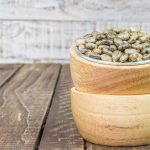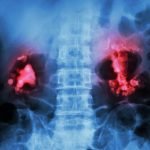Study Looks at Differences in Measles Transmission Risks
Node Smith, ND
Research that may come to affect contact tracing and infection control measures in future measles outbreaks has now been presented. A study of an outbreak of measles in Gothenburg, Sweden, a year ago shows large differences in the risk of transmission from one patient to another.
Study of an outbreak of measles in Sweden shows large differences in the risk of patient transmission
During the measles outbreak in Gothenburg, Sweden, 2017-18, the majority of cases (16 of 28) had ‘breakthrough infections’: that is, measles in previously immunized individuals, many of them being healthcare workers.
‘Breakthrough measles’ did not cause any onward transmission
The study concerned, published in the journal Eurosurveillance, shows that cases with ‘breakthrough measles’ had lower virus levels (a relatively low ‘viral load’) in the upper respiratory tract, and had less cough, than measles in unvaccinated individuals. Moreover, the former did not cause any onward transmission.
‘Breakthrough infections’ appear to be much less contagious
‘Breakthrough infections’ seem to be much less contagious, and we could not identify any onward transmission from individuals with a breakthrough infection,’ states Nicklas Sundell, the first author of the study, a researcher at Sahlgrenska Academy and infectious disease doctor at Sahlgrenska University Hospital (SU).
Regular clinical investigation yields no reliable answer about the type of measles a person has
A regular clinical investigation yields no reliable answer about the type of measles a person has: the breakthrough type of measles infection or the highly infectious ‘naïve’ (‘first-time’ or primary measles) type. However, the study shows that it is feasible, with routine laboratory methods, to distinguish breakthrough infections from ‘naïve’ infections.
Results should help to rapidly identify who has which type of measles during an outbreak
According to the researchers, the results should help to rapidly identify who has which type of measles during an outbreak, thereby facilitating infection control measures by limiting contact tracing around breakthrough infections.
‘To identify breakthrough infections at an early stage, we propose a fast-provisional classification to support decisions on contract-tracing measures during a measles outbreak,’ says Associate Professor Lars-Magnus Andersson, the senior researcher behind the study, and also Senior Consultant and Head of the Department of Infection Prevention and Control at SU.
All cases of measles infection classified as either naïve, breakthrough or vaccine infection
Of 28 measles cases identified the Gothenburg outbreak, 16 were breakthrough infections and 12 naïve infections. In addition, six ‘vaccine infections’ (caused by the vaccine itself) were also diagnosed. In the study, patient records were reviewed retrospectively and all cases of measles infection were classified as either naïve, breakthrough or vaccine infection.
How the study was conducted
Comparisons of clinical data and viral load were carried out between naïve and breakthrough infections. The study was performed in collaboration with the Departments of Communicable Disease Control in Region Västra Götaland and the infectious-disease control unit at Sahlgrenska University Hospital.
From The University of Gothenburg
- Sundell, N. et al. (2019) Measles outbreak in Gothenburg urban area, Sweden, 2017 to 2018: low viral load in breakthrough infections. Eurosurveillance. doi.org/10.2807/1560-7917.ES.2019.24.17.1900114.
 Node Smith, ND, is a naturopathic physician in Humboldt, Saskatchewan and associate editor and continuing education director for NDNR. His mission is serving relationships that support the process of transformation, and that ultimately lead to healthier people, businesses and communities. His primary therapeutic tools include counselling, homeopathy, diet and the use of cold water combined with exercise. Node considers health to be a reflection of the relationships a person or a business has with themselves, with God and with those around them. In order to cure disease and to heal, these relationships must be specifically considered. Node has worked intimately with many groups and organizations within the naturopathic profession, and helped found the non-profit, Association for Naturopathic Revitalization (ANR), which works to promote and facilitate experiential education in vitalism.
Node Smith, ND, is a naturopathic physician in Humboldt, Saskatchewan and associate editor and continuing education director for NDNR. His mission is serving relationships that support the process of transformation, and that ultimately lead to healthier people, businesses and communities. His primary therapeutic tools include counselling, homeopathy, diet and the use of cold water combined with exercise. Node considers health to be a reflection of the relationships a person or a business has with themselves, with God and with those around them. In order to cure disease and to heal, these relationships must be specifically considered. Node has worked intimately with many groups and organizations within the naturopathic profession, and helped found the non-profit, Association for Naturopathic Revitalization (ANR), which works to promote and facilitate experiential education in vitalism.
Node Smith graduated from the National University of Natural Medicine (NUNM) in 2017, and is currently licensed as a naturopathic physician in Oregon and working towards becoming licensed in Saskatchewan, Canada as well.









